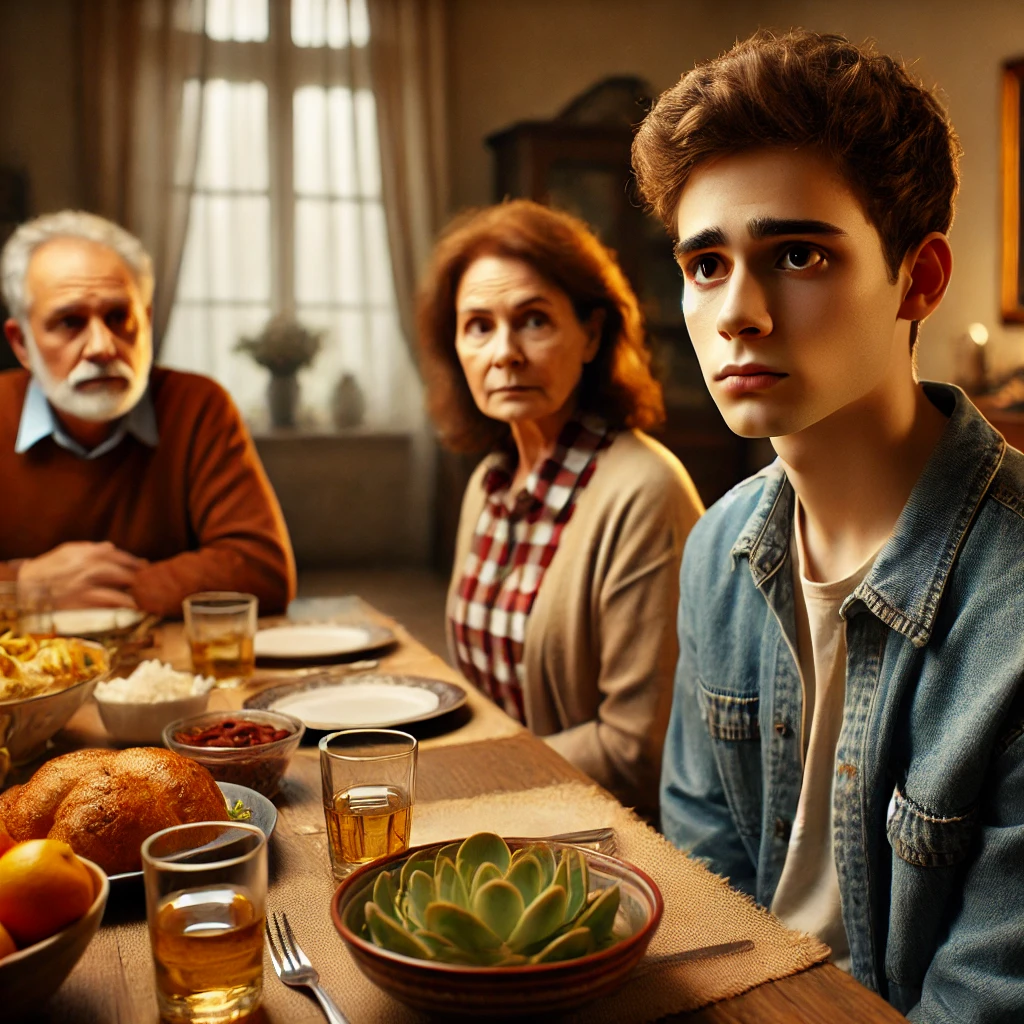
In 2024, the pressure to marry is a topic filled with deep cultural significance and personal emotions. While some people still view marriage as a natural step in life, others are questioning whether it aligns with their personal and modern values. The expectations around marriage vary across countries and cultures, but one thing is clear: the world is seeing a shift in how people approach relationships, commitment, and lifelong partnerships. As millennials and marriage trends evolve, so do the ways we understand societal pressure, family expectations, and individual happiness.
The Global Pressure to Marry: Cultural Views and Societal Expectations
Marriage has long been a cornerstone of cultural identity across the globe. In some cultures, it’s seen as a duty, while in others, it’s more about personal choice. The idea of marriage and the pressure from family to marry early or at all can vary greatly depending on where you are.
In developing countries such as India or Nigeria, marriage often carries significant weight, viewed as a necessary step for both men and women to attain social respect and familial acceptance. Here, marriage pressure from family is deeply rooted in cultural and sometimes religious traditions, with the added expectation of continuing family lineage. Arranged marriages are still common, and deviating from this norm is sometimes met with resistance. For many young adults in these regions, the societal pressure to marry is palpable.
On the other hand, developed economies like the United States, Sweden, and Japan have seen a dramatic shift in attitudes toward marriage. Marriage is no longer seen as the only or even the best option for a happy, stable life. Instead, cohabitation vs marriage has become a popular alternative, particularly in Scandinavian countries where many couples live together for years, even have children, without ever formally tying the knot. This reflects changing views on marriage, where young people are more focused on emotional compatibility and personal fulfilment than adhering to societal norms.
Even in underdeveloped economies, where traditional marriage roles are still prevalent, the winds of change are beginning to blow. In places like Kenya or Bangladesh, young women in particular are starting to delay marriage in favor of education and career opportunities. While marriage is still an important institution, the younger generation is beginning to challenge the status quo, seeing personal independence as a valuable priority.
Also Read-: 10 Subtle Signs Someone Dislikes You But Pretends to Like You
Why Millennials and Gen Z Are Delaying Marriage
So, why are millennials and Gen Z not getting married as much? There are several factors driving this trend, with economic instability topping the list. In developing economies, young people are more focused on securing financial independence before considering marriage. The rising costs of education, housing, and basic living expenses mean that many feel they cannot afford to marry early or take on the financial responsibilities that come with it. In fact, according to a 2023 Pew Research study, 44% of millennials cite financial insecurity as a reason for delaying marriage.
In developed economies, the story is much the same. Here, marriage trends are shifting away from necessity and more toward personal choice. Younger generations are opting to establish their careers and prioritize personal growth before committing to marriage. In countries like Japan and the U.S., people are getting married later, if at all. A 2022 study from the U.S. Census Bureau reported that the average age for first marriages has risen to 30 for men and 28 for women, a significant shift from previous decades.
For many in these generations, the pressure to marry is no longer internalized in the same way it was for older generations. They are more likely to ask themselves: “Is marriage necessary for happiness in modern relationships?” and come to the conclusion that it’s not. The rise of cohabitation vs marriage reflects this thinking. Many young adults believe that they can have committed, fulfilling relationships without the legal or societal pressures of marriage.
The Impact of Family Pressure on Marriage Decisions
Despite the growing trend of delaying or forgoing marriage, the pressure to marry from family remains strong in many cultures. In countries with deep-rooted traditions around marriage, like India or China, family pressure can be a major factor influencing young adults’ decisions. Parents and older generations often view marriage as essential for personal fulfilment and societal stability, which can make young people feel trapped between their own desires and familial expectations.

In some cases, this pressure can lead to anxiety and stress, particularly for those who feel that marriage isn’t right for them. In more conservative cultures, women especially may face overwhelming pressure to marry by a certain age. However, Generation Z is tackling these challenges head-on. Unlike previous generations, they are more comfortable questioning traditional norms and pushing back against the expectations placed upon them. They’re having more open conversations with their families, seeking alternatives to traditional marriage, and prioritizing personal freedom and happiness over societal approval.
How Generation Z is Redefining Relationships and Commitment
Generation Z, born roughly between the late 1990s and early 2010s, is a generation that’s deeply connected to global ideas and social justice movements. Thanks to the internet and social media, they are more aware of alternative lifestyles and less bound by the marriage pressure from family. They question everything, from whether marriage is truly necessary to whether the traditional gender roles that often come with marriage are even relevant anymore.
In countries where marriage is still highly valued, such as India or Japan, Gen Z is subtly but firmly resisting pressure. In India, for example, younger generations are increasingly vocal about their desire for love marriages over arranged ones, pushing back against parental expectations. In Japan, where marriage is often seen as a social obligation, many young adults are choosing to remain single or are opting for long-term cohabitation instead. This reflects changing views on marriage, where younger generations prioritize personal fulfilment over societal approval.
This shift is particularly pronounced in developed economies, where long-term relationships without marriage are widely accepted. In Sweden, for example, it’s common for couples to cohabit for years, have children, and never marry. For these couples, commitment doesn’t have to be tied to legal contracts—it’s about the personal connection and shared experiences.
Generation Z is also more open to non-traditional relationship structures, such as polyamory or long-term dating without the intention to marry. They prioritize flexibility in their relationships, seeking partnerships that evolve with their personal and emotional needs. This mirrors changing views on marriage and highlights how young people are rethinking what it means to build a life with someone.
Alternatives to Traditional Marriage
As more people challenge the idea of marriage as the ultimate relationship goal, alternatives like cohabitation or civil unions are becoming increasingly popular. For many, cohabitation offers the emotional security of a committed relationship without the legal implications of marriage. In fact, according to the National Center for Family & Marriage Research, the rate of cohabiting adults has risen by 29% since the early 2000s.
In some regions, civil unions and domestic partnerships offer legal protections for couples who choose not to marry. These alternatives provide many of the same rights as marriage, including tax benefits and legal recognition, without the cultural or societal expectations that often accompany traditional marriage.
For others, remaining single or opting for long-term relationships without the intention of marriage is becoming a valid and fulfilling option. These individuals are rewriting the rules of what it means to have a successful relationship, challenging the narrative that marriage is necessary for personal or relationship happiness.
Is Marriage Becoming Outdated?
The question on many people’s minds today is: Is the concept of marriage becoming outdated? While marriage is still a valued institution in many cultures, the way it’s viewed by younger generations has certainly shifted. For millennials and Gen Z, the traditional idea of marriage as the ultimate symbol of commitment is no longer as relevant. Many are finding happiness and fulfillment in non-traditional relationships, whether that means cohabiting, staying single, or exploring alternative forms of commitment.
However, it’s important to recognize that while marriage may be evolving, it’s not disappearing. For many, marriage still holds deep personal and cultural significance, and there are those who continue to view it as a vital part of their life journey. The key difference is that now, more than ever, people are free to choose whether or not marriage is right for them without facing the overwhelming societal pressure of past generations.
Also Read -: Does Body Colour Really Not Matter, or Is It a Lie ?
Conclusion
The pressure to marry has undoubtedly changed over time, with younger generations prioritizing personal freedom and happiness over societal expectations. Whether in developed economies where cohabitation vs marriage is widely accepted, or in developing and underdeveloped countries where marriage still holds strong cultural significance, the way people approach marriage is shifting.
Generation Z and millennials are rewriting the narrative around marriage, focusing more on emotional compatibility and personal growth than adhering to tradition. Whether through cohabitation, civil unions, or remaining single, people today have more freedom to define their relationships on their own terms.
In 2024 and beyond, the question isn’t just “Is marriage necessary for happiness in modern relationships?” but rather, “What does happiness look like for me?” As society continues to evolve, so too will our understanding of love, commitment, and marriage. Ultimately, the choice to marry or not is a deeply personal one, and the most important thing is that people feel empowered to make decisions that align with their values and desires.

